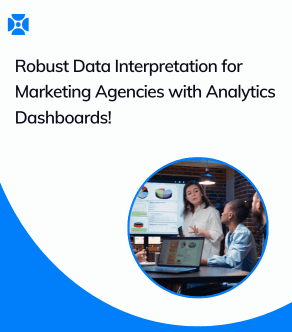
The Proliferation of Customer Experience (CX) Technology
In response to the growing importance of CX, the market for customer experience technology has witnessed significant proliferation. A vast array of tools and platforms has emerged, designed to help businesses manage and enhance every aspect of the customer journey. These technologies span various categories, including customer relationship management (CRM) systems for managing customer data, customer service platforms for efficient support, marketing automation tools for personalized engagement, customer feedback solutions for gathering insights, and omnichannel communication platforms for seamless interactions across channels. The sheer volume and complexity of available CX technologies can be overwhelming for businesses, making it crucial to adopt a strategic approach to technology selection and implementation to ensure meaningful impact on the overall customer experience.
Identifying Overlooked Aspects in Current CX Strategies
Despite the widespread adoption of CX technologies, many businesses in 2025 continue to overlook crucial aspects that significantly impact the effectiveness of their customer experience strategies. These overlooked areas often stem from a fragmented approach to CX, a lack of deep customer understanding, or a failure to fully leverage the capabilities of their existing technology investments. Examples of such overlooked aspects include the failure to proactively address customer needs, the creation of disjointed omnichannel experiences, the superficial analysis of customer sentiment, and the underutilization of data for truly personalized interactions. Identifying and addressing these overlooked aspects is critical for businesses to move beyond basic CX management and create truly exceptional and differentiated customer experiences that drive loyalty and growth.
Zoho for Holistic CX Management
Zoho Solutions offers a comprehensive and tightly integrated suite of business applications that provides a powerful platform for holistic customer experience management. Unlike disparate point solutions that can lead to data silos and disjointed customer interactions, Zoho's ecosystem, including Zoho CRM, Zoho Desk, Zoho Marketing Automation, Zoho Survey, Zoho Analytics, and Zoho SalesIQ, provides a unified view of the customer journey and enables seamless interactions across all touchpoints. This integrated approach allows businesses to gain a deeper understanding of their customers, deliver consistent and personalized experiences, and proactively address their needs. Zoho's platform offers the flexibility and scalability to support businesses of all sizes in their efforts to build a customer-centric organization and drive exceptional CX.
Core Categories of CX Technology and Their Evolution
The customer experience technology landscape in 2025 is a complex and dynamic ecosystem, comprising several core categories of tools and platforms that have evolved significantly over time:
Customer Relationship Management (CRM) Systems
CRM systems form the foundational layer of most CX technology stacks, serving as centralized repositories for customer data and interactions across various touchpoints. Modern CRM systems have evolved from simple contact management tools to sophisticated platforms that enable businesses to manage the entire customer lifecycle, from lead generation to post-sales support. They provide a 360-degree view of the customer, facilitating personalized communication, sales process automation, and improved customer relationship management. Zoho CRM is a prominent example, offering a comprehensive suite of features for sales, marketing, and customer service teams.
Customer Service and Support Platforms
Customer service and support platforms are designed to help businesses efficiently and effectively address customer inquiries, resolve issues, and provide assistance across various channels. These platforms have evolved from traditional call center software to omnichannel solutions that encompass email, chat, social media, and self-service portals. Key features include ticket management, knowledge bases, agent productivity tools, and analytics for measuring support performance. Zoho Desk is a leading example, offering a context-aware, omnichannel help desk solution.
Marketing Automation and Personalization Tools
Marketing automation and personalization tools enable businesses to engage with customers and prospects with relevant and timely messages across various marketing channels, such as email, social media, and web. These tools have evolved to leverage data and AI to deliver increasingly personalized experiences, tailoring content and offers to individual customer preferences and behaviors. Features include campaign management, lead nurturing, segmentation, and dynamic content generation. Zoho Marketing Automation and Zoho Campaigns provide robust capabilities in this area.
Customer Feedback and Analytics Solutions
Customer feedback and analytics solutions are crucial for understanding customer perceptions, identifying areas for improvement, and measuring the impact of CX initiatives. These tools have evolved from simple surveys to sophisticated platforms that capture feedback across multiple touchpoints and leverage analytics, including sentiment analysis and text analytics, to extract meaningful insights. Zoho Survey is a tool for gathering customer feedback, while Zoho Analytics provides powerful capabilities for analyzing this data alongside other business metrics.
Omnichannel Communication Platforms
Omnichannel communication platforms aim to provide customers with a seamless and consistent experience across all the channels they use to interact with a business. These platforms integrate various communication channels, such as phone, email, chat, social media, and in-person interactions, allowing customers to switch between channels without losing context or experiencing disjointed service. Integration capabilities are key to delivering a true omnichannel experience, and platforms like Zoho SalesIQ play a crucial role in facilitating real-time engagement across web and mobile channels.
Key CX Aspects Businesses Have Overlooked Most in 2025
The Role of Integrated Platforms vs. Point Solutions in CX Management
In managing the complexities of customer experience, businesses face a choice between adopting integrated platforms that offer a suite of interconnected tools versus deploying a collection of disparate point solutions that address specific needs. While point solutions may offer deep functionality in a particular area, they often lead to data silos, fragmented customer views, and disjointed experiences. Integrated platforms, such as Zoho Solutions, offer the advantage of seamless data flow, unified customer profiles, and consistent experiences across touchpoints. This holistic approach can simplify CX management, improve efficiency, and provide a more comprehensive understanding of the customer journey, ultimately leading to more effective and impactful CX strategies.
Underutilization of Proactive and Predictive Customer Service
Traditional customer service often operates reactively, responding to customer inquiries and issues as they arise. However, a significant aspect that many businesses overlook is the power of proactive and predictive customer service. By leveraging data analytics and AI, businesses can anticipate potential customer needs and issues before they even occur, reaching out with helpful information, proactive solutions, or personalized recommendations. For example, analyzing website behavior or past purchase history can indicate a customer might need assistance, triggering a proactive chat or email. This proactive approach not only resolves potential problems before they escalate but also demonstrates a genuine commitment 1 to customer success, significantly enhancing the overall experience.
Ignoring the Granular Analysis of Customer Sentiment and Emotions
While many businesses collect customer feedback through surveys and reviews, a significant aspect often overlooked is the granular analysis of customer sentiment and emotions expressed in their interactions across various channels, including text, voice, and social media. Basic sentiment analysis might categorize feedback as positive, negative, or neutral, but deeper analysis can uncover the specific emotions driving customer satisfaction or dissatisfaction. Understanding the nuances of customer sentiment allows businesses to identify specific pain points, tailor their responses more effectively, and proactively address underlying issues. Advanced natural language processing (NLP) and AI-powered sentiment analysis tools can provide these deeper insights, but their potential is often underutilized.
Insufficient Personalization Beyond Basic Data Points
Personalization has become a buzzword in marketing and customer experience, but many businesses still rely on basic data points, such as name and purchase history, for their personalization efforts. Customers in 2025 expect more sophisticated and context-aware personalization that truly understands their individual needs, preferences, and behaviors across their entire journey. Overlooked aspects include failing to leverage behavioral data, real-time context, and predictive analytics to deliver truly relevant and timely personalized experiences. This can range from personalized product recommendations based on browsing history to tailored content based on past engagement and even proactive support based on predicted needs. Moving beyond superficial personalization to deliver truly meaningful and valuable interactions is a significant opportunity often missed.
Overlooking the Importance of Empowering Frontline Employees with Technology
Frontline employees – those who directly interact with customers, such as sales representatives and support agents – play a crucial role in shaping the customer experience. However, many businesses overlook the importance of equipping these employees with the right technology and information to effectively do their jobs and deliver exceptional service. Overlooked aspects include failing to provide frontline teams with a comprehensive view of the customer (e.g., past interactions, preferences, issues), inefficient tools and processes that hinder their ability to resolve issues quickly, and a lack of real-time access to knowledge bases and relevant information. Empowering frontline employees with the right technology not only improves their efficiency but also enables them to provide more personalized, informed, and empathetic service, directly impacting customer satisfaction.
Failing to Integrate Feedback Loops for Continuous CX Improvement
Collecting customer feedback is only one part of the equation; the crucial aspect often overlooked is the effective integration of this feedback into a continuous improvement cycle. Many businesses fail to systematically analyze customer feedback, identify recurring themes and pain points, and translate these insights into tangible actions to improve their products, services, and processes. Overlooked aspects include a lack of clear processes for routing feedback to relevant teams, a failure to prioritize and act on customer insights, and a lack of communication back to customers about the changes made based on their feedback. A closed-loop feedback system demonstrates that the business values customer input and is committed to continuous improvement, fostering greater trust and loyalty.
Underestimating the Significance of Data Privacy and Trust in CX
In an era of increasing data privacy concerns and regulations, businesses often underestimate the significance of data privacy and trust in shaping the customer experience. Customers are increasingly aware of how their data is being collected and used, and breaches of trust can have severe consequences for brand reputation and customer loyalty. Overlooked aspects include a lack of transparency in data collection and usage practices, inadequate security measures to protect customer data, and a failure to provide customers with control over their information. Building and maintaining customer trust through transparent data practices and robust security is a fundamental aspect of delivering a positive and sustainable customer experience in 2025.
Conclusion
In conclusion, the customer experience landscape of 2025 demands a forward-thinking and holistic approach that addresses the often-overlooked aspects of customer interaction. Zoho Solutions provides a powerful and integrated platform that enables businesses to move beyond basic CX management and deliver truly exceptional experiences. By focusing on proactive service, seamless omnichannel journeys, granular sentiment analysis, deep personalization, empowered frontline employees, integrated feedback loops, and a commitment to data privacy and trust, businesses can leverage Zoho to build stronger customer relationships, drive greater loyalty, and achieve sustainable growth in an increasingly customer-centric world. Embracing a comprehensive CX strategy with Zoho is not just about adopting new technology; it's about fundamentally shifting the focus to the customer and building a business that is truly customer-obsessed.









